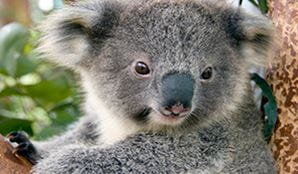Arakoon bushcare
Arakoon National Park
Overview
The fragile coastal dune system of Arakoon National Park on the beautiful NSW Mid North Coast is under threat from invasive weeds such as bitou bush. By volunteering with the Arakoon bushcare group for just 2 hours a week, you can help stem the tide of invasive weeds like bitou bush and restore native dune habitat.
- Work
- Bush regeneration, weed and pest management
- When
Every Wednesday, 9am–11am.
- Where
- Arakoon National Park in North Coast
- Grade
- Easy
Volunteering with the Arakoon bushcare group is a productive and satisfying way to help the local environment and learn about the unique ecosystem of Arakoon National Park in a social and supportive environment.
Aside from its regular volunteer work, the Arakoon bushcare volunteer group also participates in a yearly Biggest Beach Bitou Bash in May. Whether you’re a local or someone planning a visit to the area, why not set aside a few days for this weeding bonanza? The event is a collaborative effort between NSW National Parks and conservation organisations. Volunteers even get to camp for free in local national parks during the event.
Training, supervision, tools, herbicide-resistant gloves, and morning tea are all provided. Bring along insect repellant when you volunteer.
Find out more about volunteering with us
Saving Our Species program
Australia is home to more than 500,000 animal and plant species, many of which are found nowhere else in the world. Saving our Species is a statewide conservation program that addresses the growing number of Australian animals and Australian native plants facing extinction.

Park info
- in Arakoon National Park in the North Coast region
Arakoon National Park is always open but may have to close at times due to poor weather or fire danger.
What's nearby:
Things to do (41)
- Aboriginal culture (1)
- Beach (1)
- Birdwatching and wildlife encounters (18)
- Cafes and kiosks (1)
- Canoeing/paddling (3)
- Cultural heritage (2)
- Cycling (2)
- Fishing (5)
- Historic heritage (10)
- Photography (1)
- Picnics and barbecues (13)
- Road trips and car/bus tours (4)
- Sailing, boating and cruises (1)
- Sightseeing (22)
- Snorkelling and scuba (1)
- Surfing (2)
- Swimming (6)
- Walking (19)
- Waterfalls (2)



